Jim Baird, a fruit and vegetable grower in Washington’s Columbia Basin, is a big supporter of the local food movement, which encourages people to purchase food from small, local farms that produce safe, high-quality food using sustainable practices.
He believes it’s important that growers meet their customers and consumers know how food is produced, but the challenge he faces is the sparse population in eastern Washington where he farms.
His Cloudview Ecofarms produce more than thirty crops, including a wide range of vegetables and heirloom and cider apples at two locations near Royal City and Ephrata. The farm is ten miles from the small town of Royal City and 40 miles from the next nearest community.
“You look around here,” he says, surveying landscape to the south, “And three people live over there, and six people there, and two there….” Then he turns north to face the Frenchman Hills where the vista as far as the eye can see is nothing but farms and orchards.
The growers who operate those farms are not growing their own food. They’re more like commodity businessmen, he observes. At the end of the day, they go to the store to buy salads and broccoli that comes from California or Mexico.
So, Baird set himself the mission of growing a wide range of fresh produce for the local population. He trucks produce to farmers’ markets in Wenatchee and Ellensburg, as well as in the Columbia Basin, but prefers not to drive 150 miles to Seattle markets.
“The farmers’ market is really the face of agriculture,” he said. “That’s where people are meeting the producer. Consumers want to know what’s going into the food and how it’s raised.”
Cloudview operates a Community Supported Agriculture (CSA) program that delivers a box of produce to a hundred families each week. It also supplies fresh produce to school districts in central Washington.
The Wenatchee School District makes a big effort to provide good, fresh, local food to students, rather than order from food-service distributors, and sends its cooks to visit the farm. Baird also puts on tours for restaurant owners, food-service managers, and others to showcase his growing techniques.
Fourth generation
Baird, a fourth-generation grower, started out in conventional farming, but has become increasingly interested in organic and agroecological production.
His maternal great-grandparents, Charles and Elizabeth Reed, established orchards in Malaga, Washington, in the late 1800s, and his maternal grandparents, Virgil and Grace Wine, had an orchard in Monitor.
His father John Baird was born in Oklahoma and grew up in Wenatchee, Washington. After earning a law degree from the University of Washington, he and his wife, Mary, moved to Ephrata, where he served as legal counsel for the Quincy Columbia Basin Irrigation District for 47 years.
He acquired farmland, mainly as an investment, and cultivated good relationships with his renters. The family had a small hobby orchard, where Jim grew up.
After high school, Baird decided to forego college in favor of becoming what he now describes as “something between a hippy and a ski bum.” After a few years of adventure, he yearned to do something more meaningful. He went back to Royal City, leased farmland from his father, and became a row-crop farmer and orchardist. Baird said he was always interested in the newest trends in agriculture and apple production and was quick to adopt Gala and Fuji apples, for example.
He was interested in the idea of organic production and of using soft pest management programs. “But I got swept into the larger-scale conventional ‘chemicals will fix everything’ kind of movement,” he said.
“As I got older, I got less thrilled with that.”
Adventure
In the late 1990s, he contracted with Mike Robinson to manage his orchards and set out again in search of adventure. His travels took him to eastern Europe, where he did tree fruit consulting, and to Mexico and Costa Rica. He stayed involved with his farming enterprises via the Internet.
Eight years ago, he returned to Ephrata to take care of his parents and return to hands-on farming. Shortly afterwards, his father died, leaving him the responsibility of all their farmland.
He was in the process of reassessing his life, when he was approached by a young couple who had traveled the world with EarthCorps and wanted to start a market garden.
Baird had a piece of land on a ridge on the Royal Slope that had well water and a panoramic view, which inspired the name Cloudview. Baird lived there in a yurt and helped them get their quarter-acre garden established. They sold the produce at farmers’ markets.
“I had more fun than in all the years of big-scale farming,” he recalled. “Here I am with thousands of acres of land, and I’ve been seeing this rise in farmers’ markets and the rise in CSAs and the organic movement, and I wanted to learn more about it, right from the grass-roots level.”
The couple moved on, and others took their place. Needing room for expansion, Baird dedicated a quarter of a circle (about 30 acres) near Royal City to the project, which includes sheep pasture and fallow land as well as cropland interspersed with insectary zones of flowering plants to attract beneficial insects.
He then developed a second location a mile from Ephrata as a demonstration farm, which hosts 25 to 30 school field trips each year.
Interns
He has several full-time employees and interns from around the country—typically well-educated young people who are perhaps disenchanted with their job prospects and want to do something that has purpose, he says.
“I’ve enjoyed seeing young people becoming interested in agriculture and where their food comes from in a real hands-on way,” he said.
They work hard to grow their own food while at the farm as well as to provide food for the markets.
They experience small-scale farming in the midst of the large-scale farms in the Columbia Basin and learn every aspect of food production, from planting seeds in the greenhouse to selling the produce at the market.
“Most of those people aren’t going to go on in agriculture,” Baird acknowledged. “But they at least have a much greater awareness of what it takes to produce food. I really think it’s raising food awareness.”
As well as running Cloudview Farms, Baird and his elder son Jamie grow organic wheat, alfalfa, and apples on about 900 acres. Baird also has joint ventures in organic potatoes, onions, and other crops, and says he’s committed to organic methods, which he thinks are healthier for the soil and the environment.
He has his own 250-acre orchard and is a partner with Robinson and Warren Morgan in BMR Orchards, which Robinson manages. Baird said although he tends to be on the alternative side, he embraces the latest technology such as platforms and mechanical thinning that can help improve production.
“I like both sides of the coin,” he said. “I like the most progressive things going on in agriculture, from robots to mechanization, but at the same time, I like the more earthy stuff. I’m not trying to go back in time.”
Energized
Baird said the small-scale farming energizes him, as he loves to experiment with cover crops, rotations, and other ways to build nutrients in the soil in order to produce healthy food.
He’s pleased that consumers seem to be taking a greater interest in where and how their food is produced.
“We can and should be embracing this,” he said. He believes Washington could build a reputation as the healthy food capital of the world and be more open about how crops are grown.
“We in agriculture feed our society, so we have the responsibility of having healthy soils and growing as healthy produce as we know how,” he said.
He believes the organic market has not been fully tapped and there’s a new generation of people who simply think buying organic food is cool, regardless of whether it’s healthier.
“I don’t buy this nonsense that we can’t feed the world organically,” he said. “This can be done, and saying it can’t is just one more way to avoid trying to farm healthier, which we, as providers of society’s food, should be morally and ethically trying to do.”
Baird admits that while there’s a lot of money to be made in large-scale farming, it’s much harder to be financially sustainable on a small scale, particularly given the distance from markets.
“I’m not putting all my eggs in one basket,” he said. “I have a very well run, good orchard that supports this venture.”
Two years ago, Cloudview became a not-for-profit 501(c)3 operation. How it will evolve in the future, Baird’s not sure. He’s ready to let it morph into a new phase when the time comes, perhaps as a research farm focusing on cover crops and plant nutrition.
Baird said he’s pleased that the farm has been able to demonstrate the benefits of small-scale production in an era when 90 percent of our food comes from large farms.
“It’s very important to be engaged in something you feel passionate about,” he said. “It matched my values and where I would like to see agriculture go, with more heart and more interaction with the public.” •

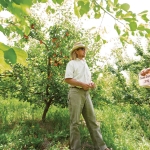
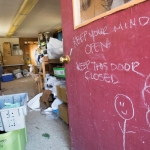
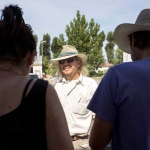
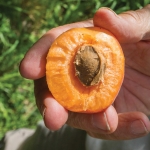
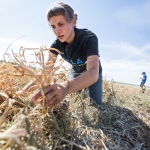
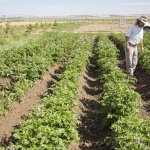
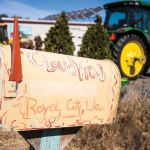
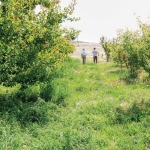
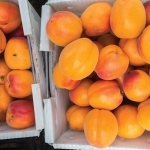
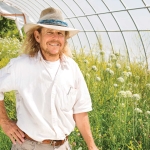





Leave A Comment